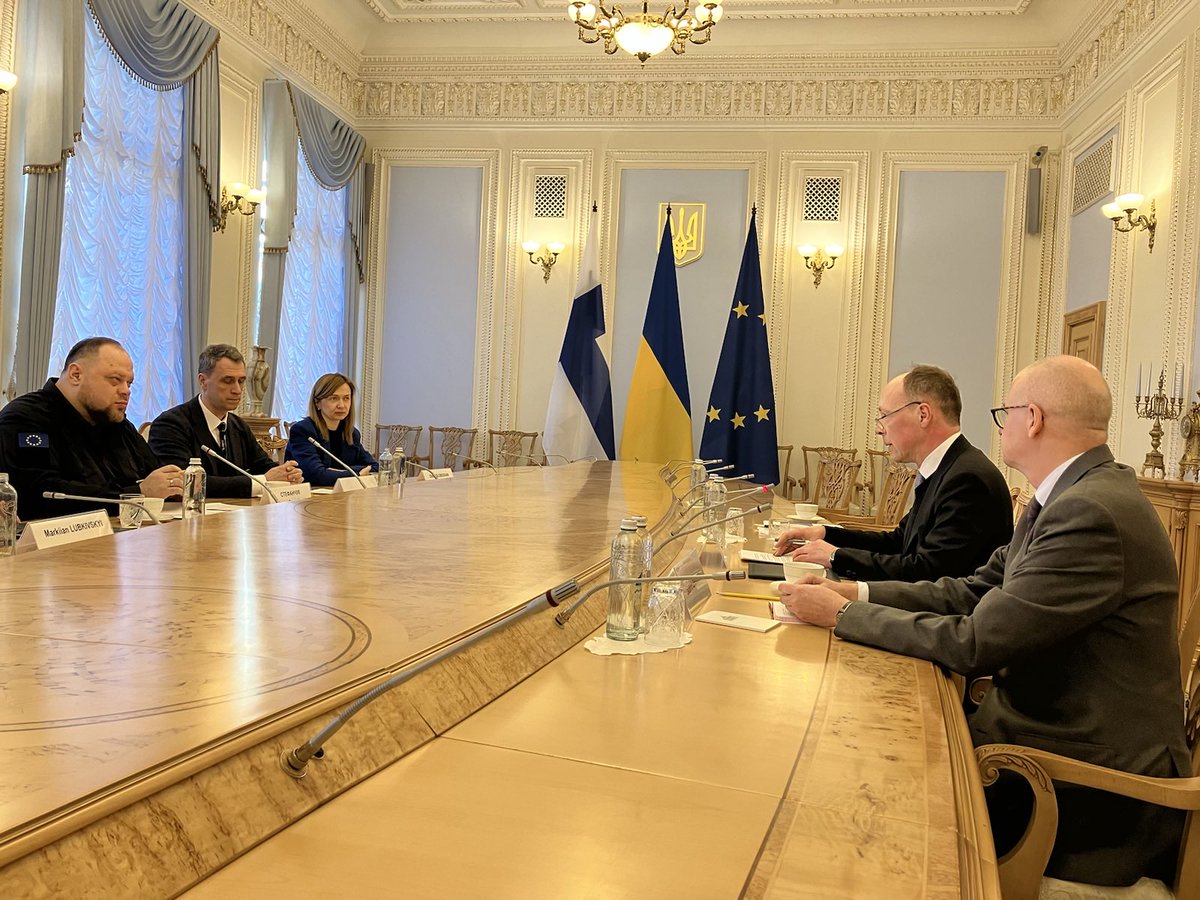1/17 The Finnish government is reluctant to stop issuing tourist visas to Russian citizens and continues to allow holders of Schengen visas, issued by other member states, into the country.
We have received criticism for this from our friends to the south.
We have received criticism for this from our friends to the south.
https://twitter.com/sakkov/status/1569649550943727619
2/17 I completely agree with the criticism. Russia is a criminal state, and Mr Putin's regime and actions enjoy huge popularity among "ordinary" Russians. If they wage a war against the free world, there should be no room for them in the free world.
3/17 Finland is about to become the only member state sharing a land border with Russia where and through which Russian tourists can travel.
Most Finns find this embarrassing, if this is any defense or consolation.
Most Finns find this embarrassing, if this is any defense or consolation.
4/17 The main factor behind the Finnish reluctance, however, is not a wish to please Russia or a fear of losing Russian tourists. The reason is rather our peculiar and pathological relationship with legalism. This has historical roots.
5/17 Between 1809 and 1917 Finland was a Grand Duchy within the Russian Empire. We had a considerable autonomy and most importantly - a constitution. In Finland, the Emperor was not an absolute autocrat but a constitutional monarch who had to rule by law, not by whim.
6/17 There were periods of Russification and oppression, as in other parts of the Empire. Finns, unlike Poles and some others, did not resist by open rebellion but by weaponizing the law which the Emperor had vowed to respect.
By "f**king the comma", as we say in Finnish.
By "f**king the comma", as we say in Finnish.
7/17 When the Russian General Gouvernor in Helsinki gave orders or expressed wishes that were deemed undesirable by the locals, an army of legal experts were mobilized to prove beyond reasonable doubt that the orders were impossible to implement because they were illegal.
8/17 "We would not dare to break the law of which His Excellent and Noblest Majesty is the High Guarantor and Defender!!"
This was not perfect but it worked better than could be expected.
This was not perfect but it worked better than could be expected.
9/17 After the second world war the same method was applied to fend off some of the most extreme demands of the Soviet Union whose ambassador had a role somewhat similar to that of the Imperial General Gouvernor.
10/17 These experiences have left a permanent mark in the Finnish thinking and behavior.
If a policy, in this case a tourist visa ban on Russians, is proposed, it is completely irrelevant whether the proposed policy is deemed necessary or desirable.
If a policy, in this case a tourist visa ban on Russians, is proposed, it is completely irrelevant whether the proposed policy is deemed necessary or desirable.
11/17 The only relevant thing is whether it is legal and constitutional. Its legality, in turn, depends on its compatibility not with the "spirit of the law" (i.e., the intentions of those who wrote the law) but with its letter.
12/17 Moreover, if (as is usually the case) the law leaves room for interpretation, the most restrictive interpretation wins. That is, if it is possible to read the law in such a way as to make a proposed policy illegal, then that reading is invariably chosen.
13/17 Finns themselves are very much aware of this national pathology. It is a constant and endless source of ridicule, frustration and outrage, but we seemingly just cannot help it.
14/17 I heard a joke this year that if armed, unidentified, green men appeared in Finland, the country would be occupied before we reached an agreement on whether the event meets the criteria, stipulated by the law, that justify an armed response.
15/17 In many countries, decisions can be made fast when circumstances call for them. Legal experts work to find ways to stretch and circumvent problematic legislation. The attitude is that possible legal problems can be discussed afterwards in court. First things first.
16/17 The Foreign Ministry and their legal experts are right in the sense that the existing legislation CAN be interpreted as prohibiting a total ban on Russian tourist visas. Of course it could be interpreted in other ways but - as said - it does not work like that in Finland.
17/17 I am sure Finland will have no trouble supporting an EU wide visa ban. If the letter of the law is sacred for us, an EU decision is even more so. This, thus, is what we all should work for.
• • •
Missing some Tweet in this thread? You can try to
force a refresh






